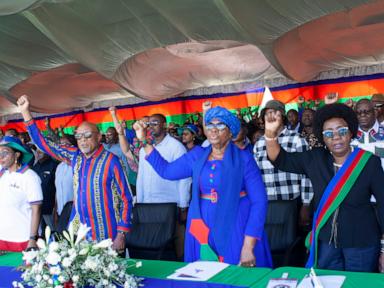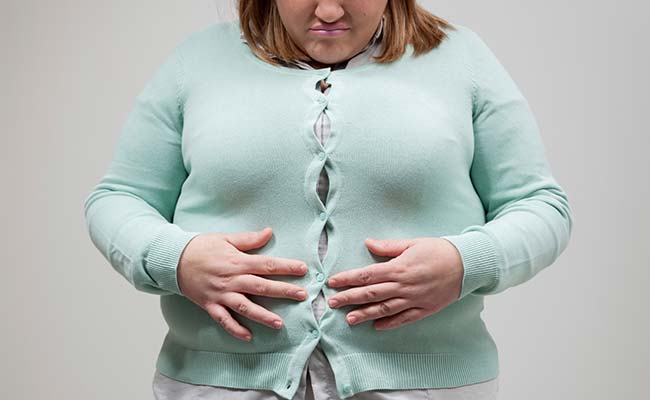ARTICLE AD BOX
Canadian Prime Minister Justin Trudeau is in the eye of a storm after he targeted India on Wednesday, saying the country made "a horrific mistake" by interfering as aggressively as it allegedly did in Canada's sovereignty. The statement -- Mr Trudeau's strongest in what's been a year of diplomatic tensions between the two nations -- came days after India and Canada expelled six of each other's diplomats.
India's Ministry of External Affairs has hit back at Justin Trudeau, saying Canada presented no evidence to support "serious allegations that it has chosen to level against India and Indian diplomats."
Who is Justin Trudeau?
Justin Trudeau, Canada's 23rd Prime Minister, has steered the country through significant challenges. From climate change and economic uncertainty to diplomatic tensions and national security concerns, Mr Trudeau has shown strong leadership.
Early Life And Education
Justin Trudeau was born on December 25, 1971, in Ottawa, Ontario, into political royalty. He is the son of former Canadian Prime Minister Pierre Trudeau and Margaret Trudeau.
Justin Trudeau studied literature at McGill University, earning a Bachelor of Arts degree in 1994. He then completed the education programme at the University of British Columbia and spent several years teaching French and maths in Vancouver.
Before entering politics, he engaged in community service as the Chair of Katimavik, a national youth volunteer organisation established by his father. He was also on the board of the Canadian Avalanche Foundation. Justin Trudeau also worked at a Montreal radio station, covering the 2004 Olympic Games in Athens, and had a role in the television miniseries, The Great War.
Political innings
Justin Trudeau's entry into politics was marked by his election to the House of Commons in 2008, representing the district of Papineau. He served as the Liberal Party's Official Opposition critic for youth and multiculturalism, citizenship and immigration and secondary education and sport. He was re-elected in 2011, 2015, 2019 and 2021.
Justin Trudeau became the Leader of the Liberal Party in April 2013, focusing on job creation, economic growth and environmental protection. His win with 80 per cent of the votes set him up for the 2015 general election fight, where he faced Conservative Prime Minister Stephen Harper.
He was sworn in as Prime Minister on November 4, 2015, just over two weeks after he led the Liberal Party to victory on October 19.
As Prime Minister, Justin Trudeau continued to make waves in Canadian politics. In 2016, he established the Canada Child Benefit, legalised medical assistance for dying and introduced the federal carbon tax. He also legalised recreational marijuana through the Cannabis Act in 2018. In addition, he attempted Senate appointment reform by establishing the Independent Advisory Board for Senate Appointments and introduced the federal carbon tax.
He also appointed Canada's first gender-balanced Cabinet.
Personal Life
Justin Trudeau got married to Sophie Gregoire in 2005, in Montreal. They have three children - Xavier (2007), Ella-Grace (2009) and Hadrien (2014).
In June 2013, after Mr Trudeau became the Liberal Party leader, they sold their Montreal home and rented a place in Ottawa. In 2014, an intruder broke in while Ms Gregoire and the children were asleep, and left a threatening note. Justin Trudeau was away at the time. After winning the 2015 election, he moved to Rideau Cottage.
Foreign Policy Achievements
Justin Trudeau's government negotiated trade deals such as the Canada-United States-Mexico Agreement (CUSMA) and the Comprehensive and Progressive Agreement for Trans-Pacific Partnership. He also signed the Paris Agreement on climate change, demonstrating Canada's commitment to reducing greenhouse gas emissions.
Mr Trudeau's government also signed the Paris Agreement on climate change in 2016.
Election Wins
Justin Trudeau led the Liberal Party to two consecutive minority government victories in Canada's federal elections. In the 2019 federal election, Mr Trudeau's Liberal Party won 157 seats but lost their previous majority, needing support from other parties to govern. The campaign centred on economic security and climate action, building on successes from his 2015 victory when he implemented tax cuts and child benefits.
In the 2021 federal election, Justin Trudeau once again led the Liberals to another minority government. This repeated outcome also stressed the need for ongoing coalition-building.
Initiatives
During the COVID-19 pandemic, Justin Trudeau's government responded with various measures, including an "assault-style" weapons ban in 2020, and launching a national $10-a-day childcare programme in 2021. More recently, Justin Trudeau launched a national school food programme and entered into a confidence and supply agreement with the New Democratic Party (NDP) on March 22, 2022. This agreement resulted in the Canadian Dental Care Plan and a framework for national pharmacare, both introduced in 2022.
India-Canada Relations Under Trudeau's Regime
India-Canada diplomatic tensions have escalated significantly under the Justin Trudeau government. The crisis began with the death of Hardeep Singh Nijjar, a Canadian citizen and Khalistani leader, in June 2023. Mr Trudeau's government claimed that agents of the Indian government were involved in the killing. India vehemently denies these claims.
The diplomatic fallout was swift, with Canada expelling six Indian diplomats and India responding in the same manner. India also withdrew its High Commissioner and other targeted officials from Canada. Justin Trudeau claimed that Indian agents were involved not only in Nijjar's killing but also in other violent activities in Canada. India rejected these claims, labelling them "preposterous" and criticising Mr Trudeau's government for "vote bank politics."
Controversies
- Aga Khan row: In 2016, Justin Trudeau and his family took a vacation on the Aga Khan's private island in the Bahamas. The Aga Khan, a spiritual leader, also heads a development network that receives Canadian government funding. This raised concerns about conflict of interest and ethics. An investigation by the Conflict of Interest and Ethics Commissioner found Mr Trudeau in violation of four sections of the Conflict of Interest Act.
- SNC-Lavalin issue: SNC-Lavalin, a Canadian engineering firm, faced corruption and fraud charges related to its Libyan business dealings. The company lobbied the government for intervention. Justin Trudeau and his office were accused of putting pressure on Justice Minister Jody Wilson-Raybould to grant SNC-Lavalin a deferred prosecution agreement. Mr Wilson-Raybould refused and was later shuffled out of her cabinet position.
- Freedom Convoy: The Canada convoy protest, known as the Freedom Convoy, started in January 2022 against COVID-19 vaccine mandates for truckers. These truckers from across Canada gathered in Ottawa, expressing broader anti-government grievances against Prime Minister Justin Trudeau. As protests escalated, Mr Trudeau relocated for safety and called the demonstrations an "insult to the truth." On February 14, he invoked the Emergencies Act, which faced legal challenges. The declaration was revoked on February 23 after police intervention ended the protests.
.png)
 1 month ago
2
1 month ago
2








 English (US)
English (US)